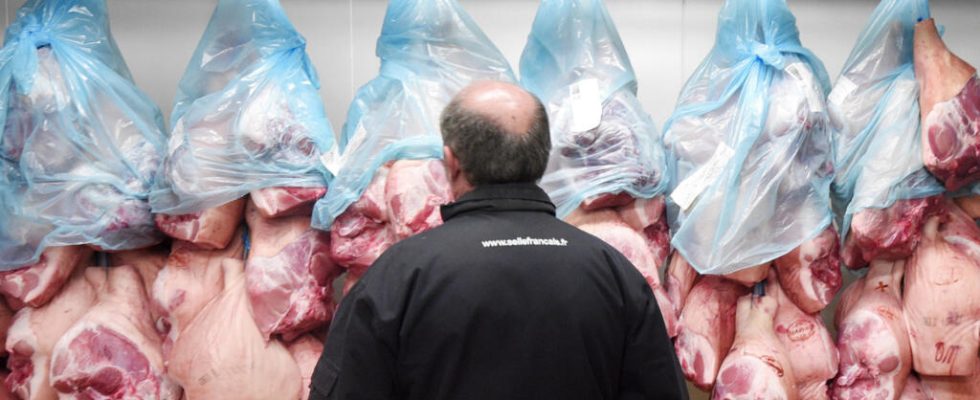While the movement of anger among farmers continues in Europe and in France, with, among the demands, the difficult adequacy between intensive agricultural model and environmental protection, a coincidence of the calendar, the High Council for the Climate (HCC) publishes this Thursday, January 25, a report on the links, precisely, between food and climate. And how to transform the sector in line with decarbonization objectives.
3 mins
Food represents a quarter of French greenhouse gas emissions. The sector is struggling to decarbonize. However, it will be necessary to respect French commitments, but also to adapt to a different climate. Corine Le Quéré is the president of the High Council for the Climate: “The food system is on the front lines of climate challenges; both, it must respond to climate impacts, and at the same time, have lower carbon production. So, we have many, many options.»
Less meat
According to this report, published in full mobilization of farmers, “46% of food emissions are imported emissions», or 63 million tonnes of CO2 equivalent, compared to 42% in 2010 (61 million tonnes). Imports thus reach “40 to 50%» of the most consumed vegetables in France, and the share of imported fruits, fish and shellfish is also high, details the High Council for the Climate. “Furthermore, 20% of beef and 30 to 40% of pork or poultry consumed in France are imported.“, underlines the independent organization, according to which “in twenty years, imports of meat and poultry preparations have increased more than fourfold“, For “partly meet the demand of the food industry» and catering.
Livestock farming alone is responsible for 59% of agricultural emissions, a sector which itself accounted for 18% of France’s greenhouse gas (GHG) emissions in 2021. The food system in its together therefore represents 22% of the overall carbon footprint of the French, according to the HCC. Instead, he recommends starting by eating fewer products of animal origin: a reduction in consumption of at least 30% would help halve agricultural emissions by 2050.
But, from fertilizer use to soil management, from transportation to restoration, the range of measures presented in this report is wide. At a time when European farmers are making their anger heard, the constraint for change cannot rest on their shoulders alone. The High Council for the Climate is aware of this and notes as a prerequisite to any reform a fairer sharing of the value of agricultural production.
“Means»
“Our report is intended to be constitutive, continues Corine Le Quéré. We cannot ask farmers to change their practices if there are not the means to promote, to support farmers in the changes that are being implemented.“. Changes, even a transformation of the sector. Without which it will also not be able to ensure its adaptation to the damage caused by global warming.
(With AFP)
Read alsoPatrice Burger (CARI): “The current food system is exhausted and dangerous”
